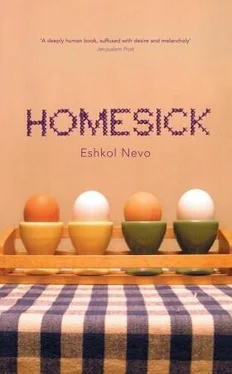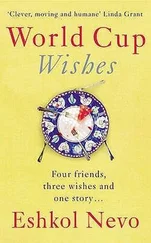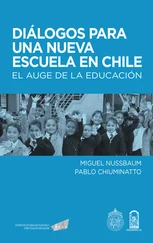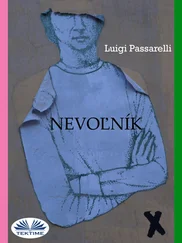Eshkol Nevo - Homesick
Здесь есть возможность читать онлайн «Eshkol Nevo - Homesick» весь текст электронной книги совершенно бесплатно (целиком полную версию без сокращений). В некоторых случаях можно слушать аудио, скачать через торрент в формате fb2 и присутствует краткое содержание. Год выпуска: 0101, ISBN: 0101, Издательство: Random House, Жанр: Современная проза, на английском языке. Описание произведения, (предисловие) а так же отзывы посетителей доступны на портале библиотеки ЛибКат.
- Название:Homesick
- Автор:
- Издательство:Random House
- Жанр:
- Год:0101
- ISBN:9781448180370
- Рейтинг книги:5 / 5. Голосов: 1
-
Избранное:Добавить в избранное
- Отзывы:
-
Ваша оценка:
- 100
- 1
- 2
- 3
- 4
- 5
Homesick: краткое содержание, описание и аннотация
Предлагаем к чтению аннотацию, описание, краткое содержание или предисловие (зависит от того, что написал сам автор книги «Homesick»). Если вы не нашли необходимую информацию о книге — напишите в комментариях, мы постараемся отыскать её.
Homesick
Homesick — читать онлайн бесплатно полную книгу (весь текст) целиком
Ниже представлен текст книги, разбитый по страницам. Система сохранения места последней прочитанной страницы, позволяет с удобством читать онлайн бесплатно книгу «Homesick», без необходимости каждый раз заново искать на чём Вы остановились. Поставьте закладку, и сможете в любой момент перейти на страницу, на которой закончили чтение.
Интервал:
Закладка:
The ones who came back from al-Kuds brought plums from the plum tree, the crooked one near the square, and figs from the muzawi tree, the one that had fruit as big as pears, and they told us that the Jews had built ugly buildings that didn’t fit in with the mountain, and that they gave all the streets the names of wars, Independence Street, Victory Street, Six Day War Street, and they told us about Aziz, the only man who stayed in the village to wait for the soldiers, and after he was killed, he turned into a black demon that entered into the body of the Jews and made them crazy.
We were the only ones who didn’t go back. My mother wouldn’t let us. She said she didn’t want to see. Didn’t want to know. Didn’t want to hear. With eyes glittering with anger, she would say, I will only go back to my home to live there. I won’t be like those fellahin who stand around like beggars, waiting; maybe some Jew will invite them in to sit in the living room and drink coffee, in their own house. She’d say to my father, and you too, don’t you dare take the children there, or else find yourself another wife.
Even now, sitting in front of the TV, my mother’s eyes are glittering, but not with anger. In the Egyptian movie, Mahmoud Yassin comes home to his village after six years in Cairo and only the dog recognises him. Yekhreb baitak , she curses Mahmoud Yassin’s father, who’s looking at him through the window, how can you not know your own son?!
My mother, she has something to say to everyone, even to people in films. Usually, Arab women are silent, hiding behind their husbands, but with us, ever since they took away my father’s land and he had to go out and work like a common labourer, he became weak, ya’ani depressed, and my mother talks for him.
I look at the dog that’s licking Mahmoud Yassin’s face, and remember my mother’s story about Assuad the dog. It’s a story she always tells when my aunts and uncles from Ramallah come for Ramadan or Id al-Fitr, and someone mentions the sweet katayif my grandmother used to make, and before long, they’re talking about that house. Then she says: Do you remember Assuad, al-kalb , the dog? Everyone says, taba’an , of course, and they turn their chairs towards her to hear again about the night they ran away, about how Assuad, who was a big, black dog, refused to leave the house and how his howls filled up the whole wadi and even after they tied a strong iron chain around his neck he kept on pulling my father, who was holding him, back to the village and how he looked at the long line of people with the eyes of someone whose best friend had just tricked him, and how at one of their stops, when my father wasn’t watching, he managed to break loose and ran to the village with the iron chain trailing after him and never came back. They never saw him again. ‘Even a dog was more faithful to his home than we were. Even a dog!’ My mother always ended the story with those words, and all my aunts and uncles lowered their heads in shame. Then they sang mawal to the village. My father usually started quietly and all of us gradually joined in:
Ya dirati ma lakh aleinu lom, lomackh ala menkhan . Do not be angry with us, our village, be angry at those who betrayed us.
I think he’ll apologise to his son, my mother said and pointed to Mahmoud Yassin’s father, who was sitting in the dark smoking a nargileh. Mazbut, ya umi , I say, even though I’m thinking about something else: should I tell her or not? Where is your dignity, she’ll yell, how could you build houses for Jews in our village? Aren’t you ashamed? Don’t you know that the land is registered in your name? Don’t you know that it’s your land? That’s what she’ll say. So why should I tell her? Besides, how can I tell her if I’m still not sure? And how can I be sure if I still haven’t gone into the house? We’ll be finishing Madmoni’s frame soon, and I still haven’t been inside, God forgive me.
*
If you think I’ve forgiven you, you’re making a big mistake, I told Moshe and turned my back on him. Two minutes before that, I had been crazy with worry about him. It’s not like him to go out like that, in the middle of the night, when he has to drive in the morning. I looked at the alarm clock every five minutes, then every minute, then I got up and went to the kitchen and finished off a whole bag of cornflakes, even though I knew that Liron would be disappointed in the morning when he saw there were none left. I read two magazine articles about Sigal Shahmon, one in For Women and the other in Modern Times — she said she didn’t want to have children yet, but family was the most important thing in life for her — and from so much Sigal Shahmon, I was ready to forgive Moshe just as long as he came home quickly and didn’t fall asleep on the road, God forbid, and have an accident, like Turji, his friend from work who fell asleep on the road to Eilat and now he parks his car in the handicapped spaces.
But as soon as I heard the bus turn into the street and knew he was OK, I didn’t feel like making up any more. I put the box of cornflakes back in the cabinet, jumped into bed, covered myself and pretended I was sleeping. I heard the bus door closing and the front door opening and Moshe humming an Ehud Banai song, ‘Maybe after all this, we’ll sail off to an island. The children will wander along the shore.’ Why’s he humming? I thought. What’s he so happy about? And our whole fight came back into my mind, all the ugly things he said — not said, yelled — what’s good for the whole neighbourhood is good for us too. If you don’t have God, you don’t have anything. He’d yelled all kinds of things like that in an extremely loud voice, like a person who’s not sure he’s right. Like my father yelled before he left.
By the time Moshe finished in the bathroom and came into the bedroom, I had forgotten that I’d softened up and just waited for him to say one wrong word or forget to turn off the light in the living room so I could stick him with some sharp words, but he didn’t say anything, and he turned off the lights and got undressed quietly, without banging into the wardrobe, and got into bed carefully and lay down next to me without stealing the blanket. But still, I couldn’t control myself and said what I said, turned my back to him and pressed my nose up against the frozen wall. When he tried to stroke my hair from behind, I said to him, Moshe, don’t touch me, in a tone so full of disgust that I even scared myself a little.
*
When form time was over, I put everything into my bag and locked the buckle. Rinat reminded me that we still had a catch-up English lesson. I told her I know and I don’t care. Lately, I bunk lessons a lot, but no one says anything to me because I lost my brother. The headmistress even took me to the grove behind the field for a talk and leaned her elbow on a tree and got dirty from the sap. She told me about what a good student Gidi had been, as if I didn’t know, and told me that her door was always open — which is not true, it’s always closed — and that I shouldn’t hesitate to come to her about anything, anything at all.
It was very cold outside, it was even drizzling a little, so I decided to run, but I stopped after a few metres because my bag bounced around while I was running and my pencil case dug into my back.
When I got home, I didn’t feel like going inside. Mum was probably in bed, she rests every day and stares at the ceiling or at Gidi’s picture. If I went in, she’d say hi, Yoti, there’s food in the fridge, warm it up for yourself. And I’d sit alone and eat cutlets and mashed potatoes, and the potatoes’d be hard around the edges from being in the fridge for a hundred years. I can’t go to see my friends from class either, they’re still in the catch-up English lesson, and besides, lately, it’s no fun with them. All the things they do, like sneaking looks under girls’ dresses with a mirror or setting up a secret camp in the Mevessert woods, don’t interest me any more. I mean, I drag boards with them from Madmoni’s construction site and exchange Beitar cards with them, but I have this bland taste in my mouth, like old pitta, and sometimes their talk makes me really pissed off like yesterday, when Dor said he hates his big brother because he always hogs the computer to play Doom and doesn’t let him play, and I wanted to tell him, Dor, you jerk, say thank you that you even have a brother. But I didn’t say anything.
Читать дальшеИнтервал:
Закладка:
Похожие книги на «Homesick»
Представляем Вашему вниманию похожие книги на «Homesick» списком для выбора. Мы отобрали схожую по названию и смыслу литературу в надежде предоставить читателям больше вариантов отыскать новые, интересные, ещё непрочитанные произведения.
Обсуждение, отзывы о книге «Homesick» и просто собственные мнения читателей. Оставьте ваши комментарии, напишите, что Вы думаете о произведении, его смысле или главных героях. Укажите что конкретно понравилось, а что нет, и почему Вы так считаете.












